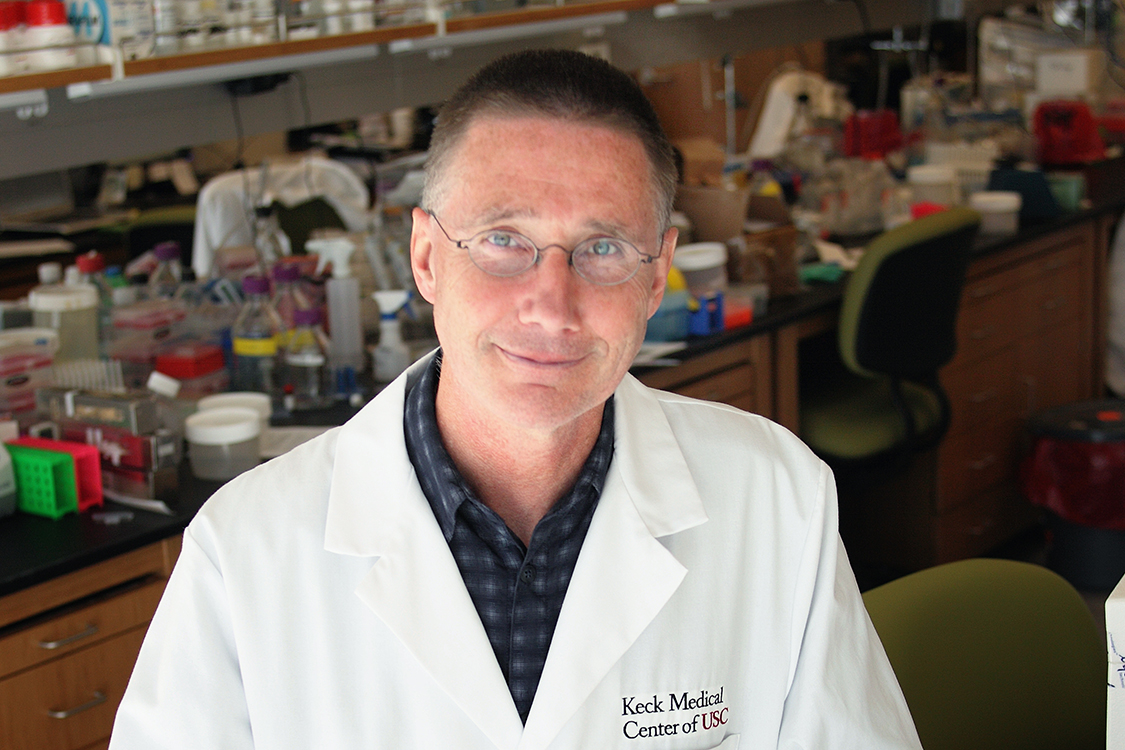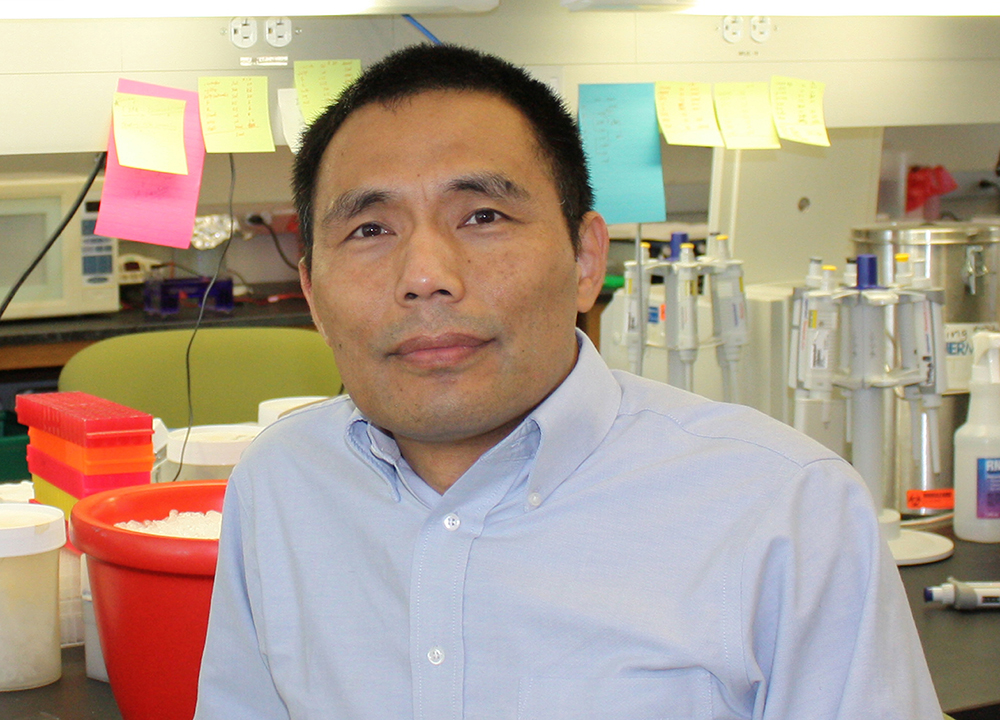
Piece by missing piece, scientists at the Keck School of Medicine of USC are deciphering the powerful gene regulatory circuit that maintains and controls the potential of embryonic stem cells (ESCs) to form any type of cell in the body.
Recent findings by Provost Professor Andrew McMahon, director of the Eli and Edythe Broad Center for Regenerative Medicine and Stem Cell Research at USC, and Qi-Long Ying, associate professor of cell and neurobiology, underscore the essential role of basic science in paving the way for future medical breakthroughs.

McMahon and Ying are in pursuit of the ways in which the intricate regulatory circuit balances two qualities of stem cells: pluripotency (the capacity to develop into any type of cell) and differentiation (the process of becoming different types of cells). The scientists are particularly interested in signaling pathways — important routes for intracellular communication.
Left to their own devices, ESCs rapidly progress to the next step and become specific types of cells.
“We want to freeze the cells at that normally transient stage so they are more compatible for use in any clinical situation,“ said McMahon, who holds the W.M. Keck Professorship in Stem Cell Biology and Regenerative Medicine at the Keck School.
In a recent study published in Stem Cells, McMahon’s team focused on the Wnt signaling pathway, one of the first pathways activated in human development. This network of proteins helps determine what a cell will become; it also is over-stimulated in colon cancer and other tumors.
Intriguingly, the Wnt pathway is linked to maintenance and differentiation of ESCs — to both stalling their evolution and encouraging it — what McMahon called “paradoxical actions.” His team’s findings zeroed in on one component in that process: transcription factor T-cell factor-3, or Tcf-3. Transcription factors are proteins that bind to DNA and control the flow of genetic information.
Working in the lab with mouse ESCs and complex bioinformatics, investigators found Tcf-3 was instrumental in destabilizing the stem cells. Equally important, beta-catenin — a multifunctional protein that activates Wnt target genes in the cell nucleus — can block Tcf-3’s ability to short-circuit the stem cells.
McMahon’s experiments rely on research by Ying, which was published in Nature in 2008. The research showed that ESCs could be cultured in the lab indefinitely and kept from differentiating, provided that two molecules were added to the cocktail in which the cells were kept.
Ying also has built on his 2008 study. In research published in the March 1 issue of Journal of Cell Science, Ying and his team analyzed another signaling pathway — LIF/STAT3 (leukemia inhibitory factor) — in the maintenance of stem cells. The researchers screened 19 genes and identified an important downstream target, a protein called Gbx2, which shows capabilities of supporting stem cell self-renewal.
What remains is a sort of genetic jigsaw puzzle.
“We have another missing piece, but we know there are many more to come,” Ying said.
The clinical applications of such investigations may not be far behind. At USC Norris Comprehensive Cancer Center, a clinical trial is now under way to study the first drug designed to specifically target and inhibit the Wnt signaling pathway. The goal is to impede the growth of cancer cells.
“This is a strong example of how basic work in stem cell biology can lead to new thinking in how to treat patients,” McMahon said.
